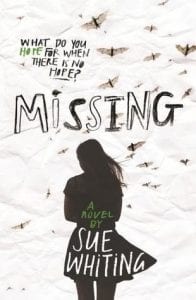 This is definitely one for book and library lovers – and those who understand the power of reading.
This is definitely one for book and library lovers – and those who understand the power of reading.
Switching between Paris in the early years of WWII and Montana in the 1980’s, ‘the Paris Library’ (by Janet Skeslien Charles) links the stories of Odile Souchet and Montana teenager, Lily.
Odile is an intense young lady, living in Paris. Her father is keen for her to find a husband, and regularly brings home suitors for Sunday lunch after church. Odile, however, isn’t particularly interested in any of them, and is more concerned with establishing herself in her dream job at the American Library.
When war is declared, the Library staff is determined to maintain their service for the Parisian community, providing books to British and French troops, and constantly work at ways to overcome the obstacles arising from Nazi occupation. Problems arise of course, due to the various backgrounds of library staff, and some reluctantly need to move on and away from their normal ways of functioning as military threats increase.
At times, it seems the library will be closed; something their dedicated subscribers (members such as students, writers, book lovers and soldiers at war) would find so tragic. Thus, the library staff do their best to meet their needs; a band of resistance in perilous times of occupation.
Woven into a tale from the past is the story of Lily, a young teen girl in Montana, as she develops an unlikely friendship with her widowed neighbour. While both are guarded, they begin to warm to one another since they share a love of language and books. Then there are slow reveals of former lives, loves and losses as the tales alternate between 1939 and 1983.
Based on the historical fact of occupied Paris during WWII, ‘the Paris Library’ is written by an author whose interests were piqued when she worked there. It provides an insight into the actions of brave individuals and the role that the American Library played in trying to normalise life and maintain civility:
With the coming of World War II, the occupation of France by the Nazi regime, and the deepening threats to French Jews, Library director Dorothy Reeder and her staff and volunteers provided heroic service by operating an underground, and potentially dangerous, book-lending service to Jewish members barred from libraries. (Source: the History of the American Library in Paris, https://americanlibraryinparis.org/history/)
The other storyline in Montana will appeal to a young adult audience, as Lily struggles with school, friendships, the loss of her mother and the subsequent change in family relationships in a small country town. How will her growing relationship with her neighbour make a difference?
Both storylines raise questions about love, trust, loyalty and the need to belong. Lovers of historical fiction will enjoy a different insight into the impact of war, both immediate and long-term. Lovers of libraries will enjoy library/literary references, and applaud the tenacity of realistic characters as they continue to provide services in this tragic period in history.
Thus, it is highly recommended for these readers, and a great choice for those wanting something new.
 What would you do if one of your parents went missing while overseas? Unfortunately, as author Sue Whiting notes over 38,00 people are reported missing in Australia each year – and “roughly 1600 are considered long term missing”.
What would you do if one of your parents went missing while overseas? Unfortunately, as author Sue Whiting notes over 38,00 people are reported missing in Australia each year – and “roughly 1600 are considered long term missing”.
 Life is different for some people. Not everyone experiences the glossy happy family life which is often portrayed in many books and movies. Sometimes it is just SO hard.
Life is different for some people. Not everyone experiences the glossy happy family life which is often portrayed in many books and movies. Sometimes it is just SO hard.